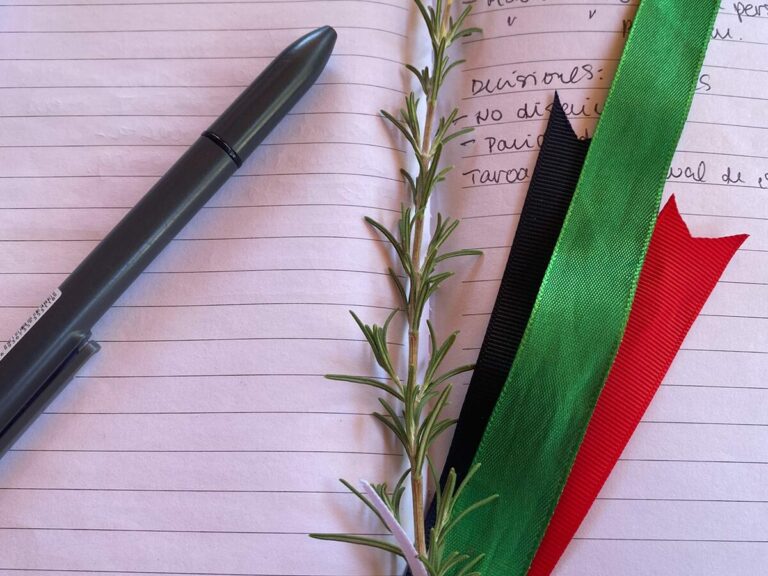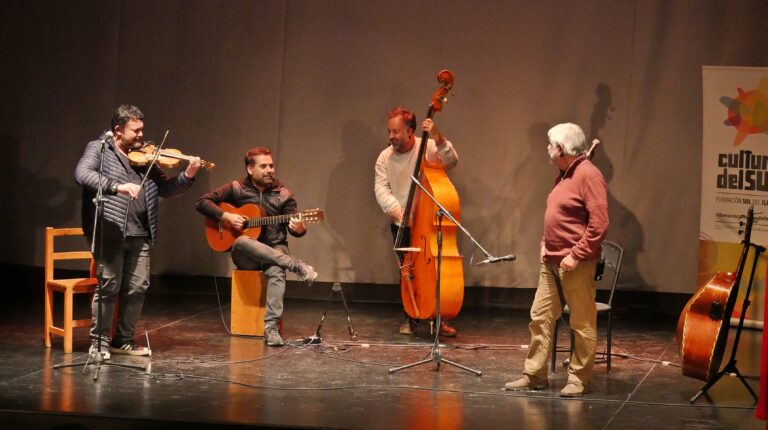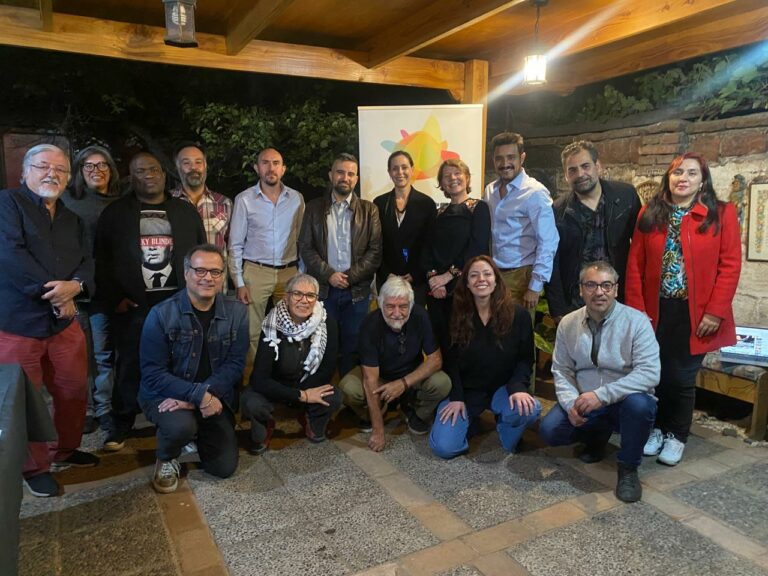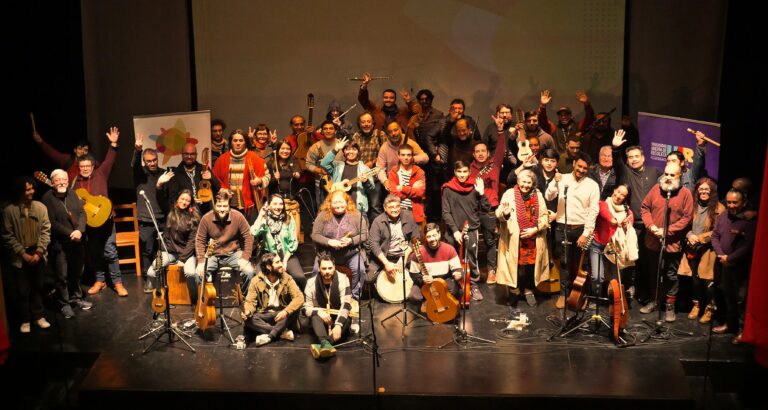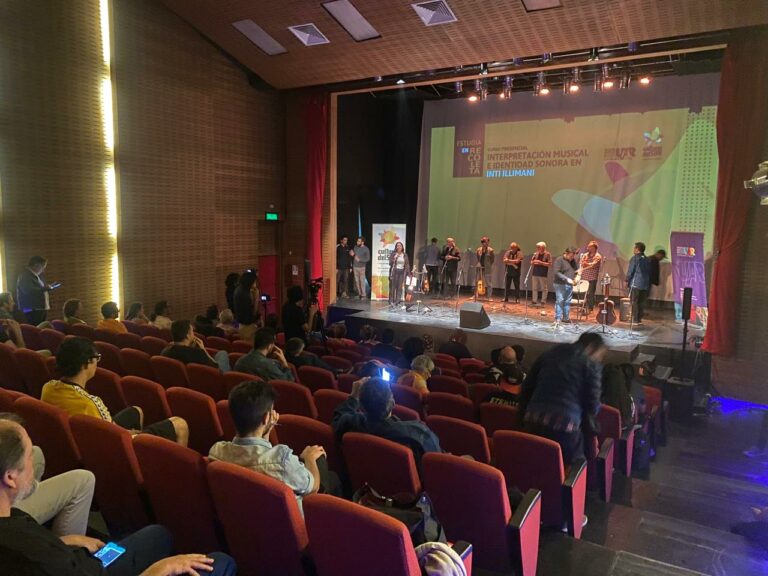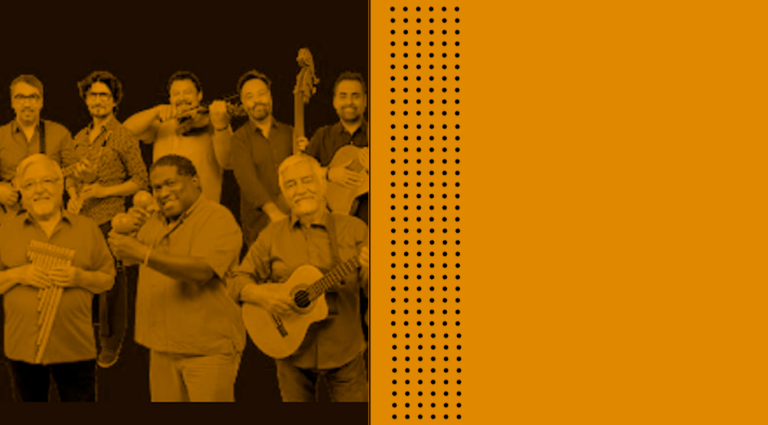The Escuela Popular del Sur officially begins its activities this Wednesday, April 17, with the course “Musical interpretation and sound identity in Inti Illimani.” This initiative of the Sol de Illimani Foundation – Cultures of the South seeks to promote contact between people through culture and art, in this case music, hand in hand with the experience of one of the most important groups in Chile. .
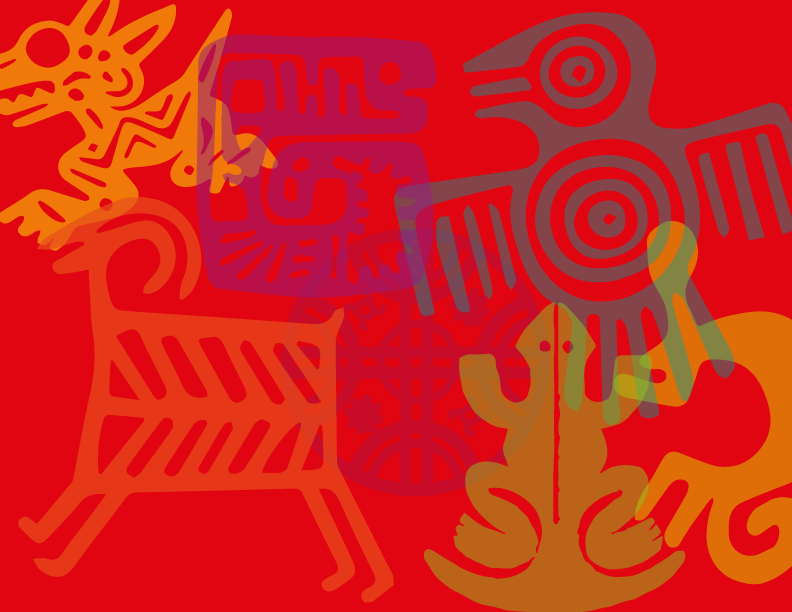
Jorge Coulon, president of the foundation and founding musician of Inti Illimani, shares some insights behind this artistic education proposal that is based on the group's deep commitment to education. Experience that they have also gathered in their work with the Sol del Illimani municipal school, in the commune of La Florida.
Regarding his view on art and education, Jorge Coulon, who is also in charge of liaison with the Popular School, shares some observations.
Why create a Popular School and what is not a Popular School?
I started to think, why make a popular school and what this popular school is not and I went to the etymology of the word “school”, which comes from Greek. And in Greek it is leisure, space, a meeting place, but also a place of fun. That definition is curious. I would say that the Popular School is a space of curiosity and mutual knowledge; exchange of artistic stimuli, traditions, ways of doing things and visions of the world.
What is the difference between a music class and this proposal?
The difference between a music class and this proposal is that we do not pretend to teach, we do not pretend to have knowledge that implies any truth. We have knowledge and we want to share it, thinking that just as we are interested in the knowledge of others, others may be interested in the knowledge that we, in our future, have accumulated.

How was the sound identity built in Inti Illimani and why is it important to make music collectively?
Collective identities are always different from a simple sum of personal identities and that is the strength that the collective has. The sum of personal identities multiplies and strengthens a collective identity. How a collective sound identity is formed has to do with those interactions. It is submitting to the judgment of others and accepting the opinions and musical tastes of others to the extent that they enrich one's own musical taste. Inti Illimani's sound identity was also formed in the interaction with other musical realities, with listening to others, with opening the windows so that a world of sounds can enter. This sound identity is in permanent transformation and, in turn, when listening to an Inti Illimani melody, or an arrangement, it is easy to identify what Inti Illimani is about: that is a journey. The group is a multiplier of sensations, styles, resources; It provides tools of sound, rhythms, and harmony. The color palette with which you can paint is much broader.
Why is it important to know and deepen our learning in music and/or art?
Since we go out into the world, everything is learning, and ways of learning and apprehending are related here: it is acquiring skills, tools and making our own the resources that allow us to face the world. But on the other hand it is also learning to live with others, no one lives alone. We are a species that develops thanks to our ability to coordinate with others. The human being owes his condition of being and his evolution to his ability to collaborate: this is fundamental in art and can be experienced in all its processes and disciplines.
The course “Musical interpretation and sound identity in Inti Illimani” will be carried out in collaboration with the Open University of Recoleta, thanks to an alliance between the Sol del Illimani Foundation and the Municipality of Recoleta. More than forty people of various ages and communities from the Metropolitan Region will participate. During eight sessions, participants will share with the Inti Illimani musicians and appreciate live the performance and exploration of their instruments.

David Azán, musician and person in charge of implementing this first course of the Popular School - from the Sol del Illimani Foundation - points out that what is sought is “make a connection with people and try to convey to them how we put ourselves at the service of music. The idea is to generate contact. Music has to do with something elevated, with feelings, with the spirit, with what moves one, with a powerful immaterial thing. We want to transmit our knowledge, not in a pedagogical way, but from our experience, from knowledge that we have been acquiring from here and there, from other continents, other musicians, other music. There are many better instrumentalists than us, but in sound we have a singularity and that is what we are going to share”.

